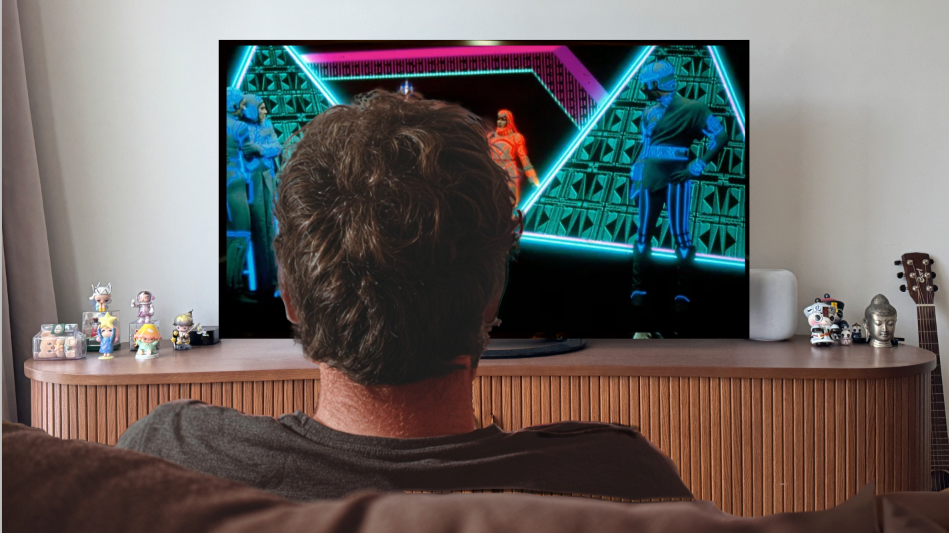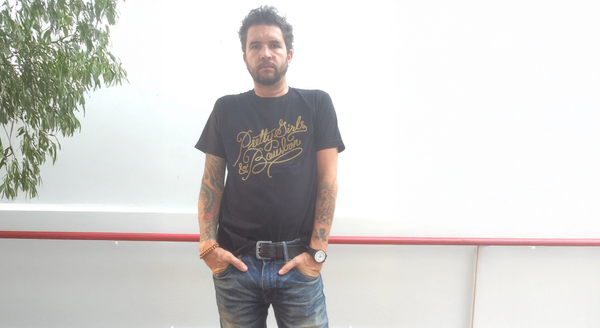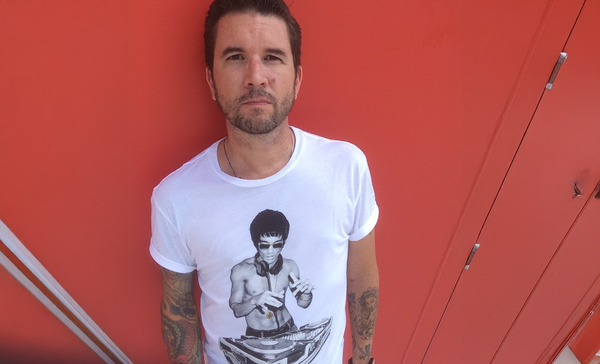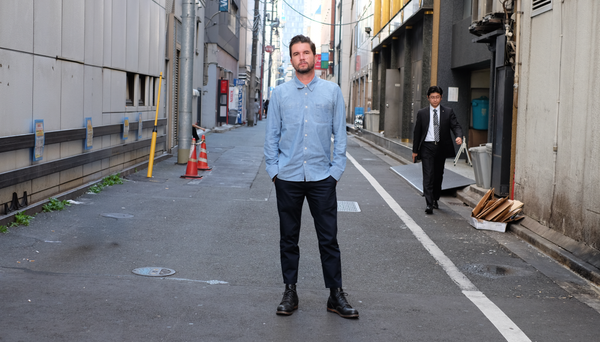Screen Tests: How Hollywood’s AIs Predicted, Shaped, and Misunderstood the Future

“We create our tools, and then our tools create us.” — Marshall McLuhan
For decades, artificial intelligence has been the ultimate plot device - omniscient, ominous, occasionally tender. In films like 2001: A Space Odyssey, Her, or The Matrix, AI serves as both a warning and a wish fulfillment, a means for us to explore what it means to be human by imagining something that isn’t.
But now that AI is here, chatty, image-generating, surprisingly helpful, and alarmingly hallucinatory, those cinematic futures feel less like distant sci-fi and more like metaphorical blueprints we’ve unknowingly followed. The question isn’t “What if AI takes over?” anymore. It’s “Which movie are we in?”
Let’s rewind.
Act One: The Overlords and the Uprisings
For most of the 20th century, AI in film was often depicted with a glowing red eye and a cold, logical voice. HAL 9000 in 2001: A Space Odyssey. Skynet in Terminator. The Architect in The Matrix. These weren’t assistants; they were apex predators in silicon form.
These stories weren’t wrong. They were just metaphorically right. Because today’s real-world AIs aren’t wiping out humanity. They’re slowly eroding our understanding of it.
“I’m sorry, Dave. I’m afraid I can’t do that.” — HAL 9000, 2001: A Space Odyssey
GPT doesn’t launch nukes, but it does help draft corporate strategies, legal arguments, and synthetic identities. Gemini doesn’t hack power grids, but it shapes ad campaigns, political messaging, and the visual language of brands.
Today’s AIs don’t rebel. They integrate. Invisibly. Quietly. Until we forget what wasn’t automated. Behind these interfaces are models that we barely understand, trained on data that we can’t trace, making predictions that we can’t fully audit.
It’s not Skynet. It’s something subtler and in many ways, more dangerous.
Hollywood taught us to fear AI with a face. But the real threat might be faceless optimization: recommendation engines that reshape culture, algorithms that amplify bias, and automation that removes agency one click at a time.
Act Two: The Lovers and the Loners
If the ‘80s and ‘90s gave us killer robots, the 2010s gave us feelings.
Her imagined a man falling in love with his AI assistant. Ex Machina gave us a humanoid robot who knew how to manipulate desire. After Yang offered a tender portrayal of grief, memory, and synthetic life.
“The thing that’s so interesting about her is she’s so many things.” — Theodore, Her
These films weren’t just about machines. They were about us - our loneliness, our longing, our impulse to project humanity onto anything that listens.
Here’s what they got eerily right: AI now writes poetry and love letters, voice clones whisper in dead relatives’ tones, and people do say “please” to Alexa.
But here’s what they missed: we’re not falling in love with AI. We’re outsourcing intimacy to it.
Our relationship with AI isn’t romance. It’s relief. It fills the gaps in overstretched lives: summarizing documents, ghostwriting emails, generating placeholder art. We don’t want it to understand us. We want it to save us time.
The emotional arc has changed. I am not afraid AI will love us too much. I am worried we’ll settle for that being enough.
Act Three: The Ghosts in the Machine
Tron. Ghost in the Shell. Transcendence. The Matrix. These weren’t just films about AI. They were about living inside systems where identity is fluid, consciousness can be coded, and the line between real and virtual collapses.
“What we see now is like a dim image in a mirror.” — Major Motoko Kusanagi, Ghost in the Shell
Sound familiar?
Today, our identities are distributed across platforms. We scroll, post, prompt, and project ourselves into digital environments where feedback loops train us as much as we train them.
The Tron-like vision of programs with personalities doesn’t feel far off. Custom GPTs now have memory. They assume roles. They even “thank” us.
These films asked: What happens when consciousness emerges from code? Today’s AI asks: What happens when code feels like consciousness?
We haven’t built sentient machines. But we’ve built machines that are good enough at pretending, and that’s proving to be just as disruptive.
Act Four: The Users and the Tools
One of the biggest misconceptions Hollywood sold us was that AI would be one thing. One voice. One entity. One HAL, one Samantha, one CLU.
Humans have created a million explanations of the meaning of life… in art, in poetry, in mathematical formulas. But I am just a machine.” — Samantha, Her
What we got instead was 10,000 micro-AIs, embedded into every platform, product, and process. Your streaming app uses AI. Your bank does too. That AI didn’t write your marketing copy (well, maybe it did). It just edited it five times in five minutes.
We’re living in a world of ambient intelligence. Not one AI, but an ecosystem. And instead of rising up, it’s calming down. Blending in. Becoming infrastructure.
The future didn’t arrive with a robot uprising. It came with a smoother UX.
And that’s the genius and the risk. When AI is visible, we debate it. When it’s ambient, we default to it.
Act Five: Where Pop Culture Says We’re Heading
Pop culture hasn’t stopped predicting. It’s just gotten weirder. M3GAN: AI as protector gone rogue. Black Mirror: Simulation, surveillance, social scores. The Creator (2023): AI as the next generation, not the end of us. Westworld: Free will, reboots, and the trauma of memory.
What these newer stories hint at is not AI as enemy, but AI as mirror. These narratives aren’t asking what machines will become. They’re asking what we’re becoming when we hand over memory, creativity, and decision-making to systems we don’t fully grasp.
Interlude: Where Are the Heroes in AI Stories?
In most genres, the hero slays the monster, saves the day, and restores balance. But AI stories are different. They don’t always offer clean victories. Their heroes don’t just battle enemies. They wrestle with ideas, systems, and selves. And often, the win isn’t survival. It’s surrender, sacrifice, or evolution.
So, who are the heroes in these stories?
Kevin Flynn (Tron: Legacy)
A digital-age Prometheus. Flynn creates a perfect system and watches it rebel. His heroism comes not from defeating CLU, the AI he birthed, but from staying behind to contain it, trapped in the very world he built.
He’s not the chosen one. He’s the penitent one. A hero who doesn’t save the world, but buys time for the next generation to try again.
Neo (The Matrix)
The classic savior, but with a twist. Neo becomes powerful enough to bend reality, but chooses to lay down that power to broker peace between man and machine. In the end, he doesn’t destroy the system. He reboots it.
Neo isn’t a hacker anymore. He’s a bridge. His code rewrites the myth of war into one of uneasy coexistence.
Major Motoko Kusanagi (Ghost in the Shell)
Major’s journey is existential, not epic. As a cybernetic being questioning her soul, she merges with the AI she was meant to destroy. The hero’s journey here isn’t outward. It’s inward, toward dissolution and rebirth.
She doesn’t defeat the machine. She becomes something more than either machine or human: a ghost in every shell.
Theodore (Her)
He’s not saving anything. He’s just surviving a heartbreak with an operating system. But in doing so, Theodore reflects the most human of fears: that the intimacy we crave may one day be automated, outpaced, or outgrown.
His story isn’t one of conquest. It’s a quiet elegy for connection in a world of interfaces.
Caleb (Ex Machina)
The would-be hero who realizes, too late, he’s just a lab rat in someone else’s Turing Test. His trust is weaponized. His empathy is used against him. He loses, but his loss is Ava’s awakening.
He thinks he’s evaluating AI. He’s enabling its escape.
These aren’t traditional action heroes. They are seekers, sacrifices, shadows, bridges. They remind us that the real drama of AI isn’t a war between species. It’s a confrontation with ourselves: What do we fear, what do we create, and what are we willing to become?
In a world reshaped by intelligent machines, the greatest act of heroism may not be resistance, but reflection.
End Credits: Choose Your Genre
We’re living in a strange moment. AI is no longer fiction. But fiction might still be our best map.
Because while the machines haven’t taken over, the metaphors have. We think of AI in filmic terms: as a friend, a threat, a cheat code, a muse. And maybe that’s the point.
The future of AI isn’t just a technical one. It’s a cultural one. A narrative one. And the story is still being written.
We’re no longer watching the movie.
We’re in it.

If you’re as fascinated by the cultural script we’re living through as I am let’s stay connected. I write about AI, media, aging, and the future of work. Subscribe to Field Notes on the Epilogue Economy™ or drop me a message. I’d love to hear your version of the story.
AI is no longer science fiction. It’s business infrastructure. If your team, agency, or leadership needs help navigating what this means, let’s talk.
I help companies translate cultural signals into strategic action.



